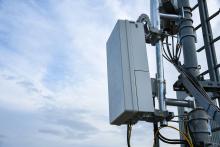After a default installation on a Windows 2000 server with IIS, we created a new database on a SQL Server for Afaria. Xcellenet did not include a scripting tool for setting up a database for either Oracle or SQL 2000, but it ships a copy of MSDE (MS Data Engine) to get you started.
Once the database was up and running for Afaria and we had installed the run-time version of CrystalReports that came packaged with Afaria, it was time to create document channels, which contain instructions for exchanging or delivering content to handhelds, like Win32, Palm, PocketPC clients, what specific content and whether to deliver it compressed or encrypted, for example. Aside from handhelds, you can create channels for Windows 98, 2000 and XP-based PCs and laptops. If you deliver a document to a PC or laptop, you can then use a local delivery mechanism such as MS ActiveSync or Palm's HotSync to synchronize it with a handheld device.
Once a device is running Afaria, you can distribute software updates through a distribution channel. You can also distribute other software packages and maintain a catalog of software for each handheld device.
Wherever You May Roam
To see what Afaria could do for roaming clients, we set up a Hewlett-Packard Jornada running PocketPC with a Linksys 802.11b compact flash card. We downloaded the client file from the Afaria server and installed it to the Jornada from a laptop. Then we could run the client application to query the Afaria server for available channels. We used a Web browser to create the channels.








